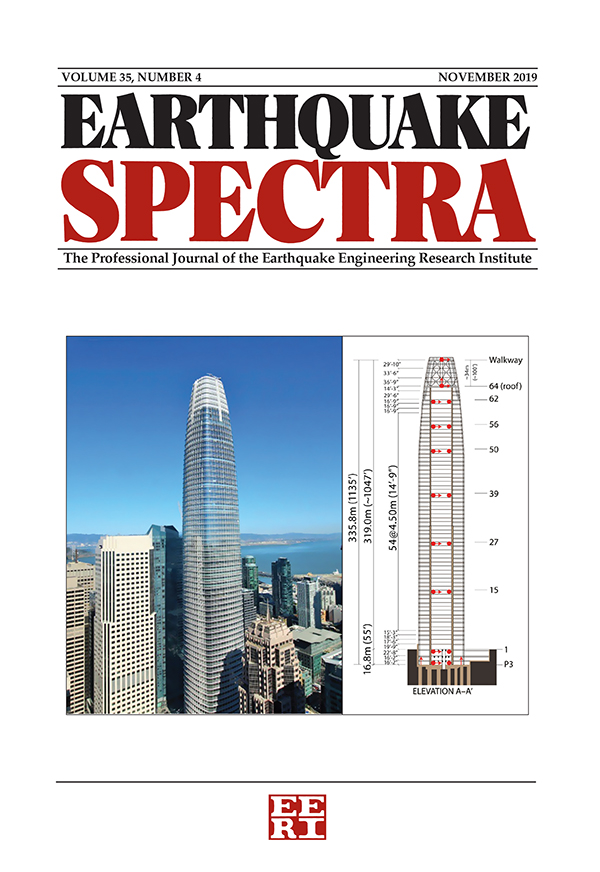2022 年台湾池上 6.9 级地震水平反应谱的方向性特征
IF 3.7
2区 工程技术
Q2 ENGINEERING, CIVIL
引用次数: 0
摘要
水平地震地动强度,特别是响应谱序数,随方位而变化。这种现象通常被称为地动方向性,可分为两个方面:发生最大频谱响应的方位和响应频谱序数随方位偏离最大频谱响应方位而变化。本研究利用最近发生的 2022 年台湾池上 6.9 级地震对这两方面进行了研究。研究发现,响应谱序数随方位的平均变化比以往活动构造体系中的浅地壳地震略微显著。此外,还发现最大频谱响应的方位接近横向方位,而横向方位与特定地点指向震中的方位垂直,这证实了之前对走向滑动地震的观测结果。这些结果表明,可利用地点相对于震源的位置来修改地动模型的输出结果,以估算特定水平方向的频谱响应。本文章由计算机程序翻译,如有差异,请以英文原文为准。
Directionality characteristics of horizontal response spectra from the 2022 Mw 6.9 Chihshang, Taiwan earthquake
Horizontal earthquake ground motion intensity, and specifically response spectral ordinates, vary with orientation. This phenomenon is usually referred to as ground motion directionality and can be separated into two aspects: the orientation where the maximum spectral response occurs and the variation of response spectral ordinates as the orientation moves away from the orientation of maximum spectral response. This work studies both aspects using the recent 2022 Mw 6.9 Chihshang, Taiwan earthquake, which was recorded by a dense network of strong motion stations with various geological and topographical settings. The mean variation of response spectral ordinates with orientation is found to be slightly more significant than that of previous shallow crustal earthquakes in active tectonic regimes. Moreover, the orientation of maximum spectral response is found to be close to the transverse orientation, which is perpendicular to the orientation at a given site that points to the earthquake epicenter, confirming prior observations made for strike-slip earthquakes. These results suggest that the location of a site relative to the seismic source could be used to modify the outputs of ground motion models to estimate spectral responses at specific horizontal orientations.
求助全文
通过发布文献求助,成功后即可免费获取论文全文。
去求助
来源期刊

Earthquake Spectra
工程技术-工程:地质
CiteScore
8.40
自引率
12.00%
发文量
88
审稿时长
6-12 weeks
期刊介绍:
Earthquake Spectra, the professional peer-reviewed journal of the Earthquake Engineering Research Institute (EERI), serves as the publication of record for the development of earthquake engineering practice, earthquake codes and regulations, earthquake public policy, and earthquake investigation reports. The journal is published quarterly in both printed and online editions in February, May, August, and November, with additional special edition issues.
EERI established Earthquake Spectra with the purpose of improving the practice of earthquake hazards mitigation, preparedness, and recovery — serving the informational needs of the diverse professionals engaged in earthquake risk reduction: civil, geotechnical, mechanical, and structural engineers; geologists, seismologists, and other earth scientists; architects and city planners; public officials; social scientists; and researchers.
 求助内容:
求助内容: 应助结果提醒方式:
应助结果提醒方式:


